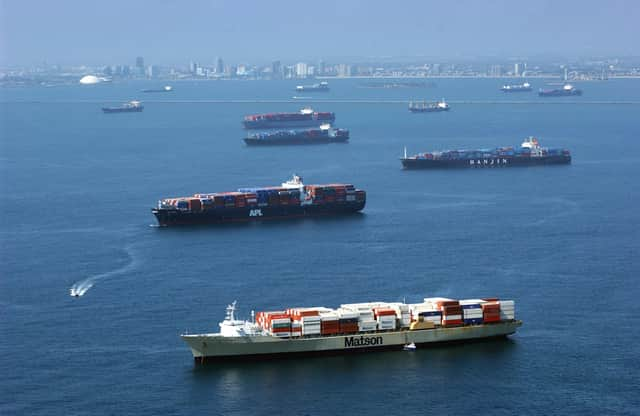COP26: Clydebank Declaration to cut shipping emissions could be a significant moment in history – Scotsman comment


But this is precisely what the shipping industry – which, if it was a nation, would be the sixth-worst polluter – will do, based on forecasts of the growth in world trade, unless action is taken.
So many will view the newly announced “Clydebank Declaration” as somewhat overdue.
Advertisement
Hide AdAdvertisement
Hide AdThe 19 countries that are the first signatories to the pledge – including the UK, US, Japan, Germany, France and Chile, but not China – “recognise that a rapid transition in the coming decade to clean maritime fuels, zero-emission vessels, [and] alternative propulsion systems... is imperative for the transition to clean shipping”.
Under the terms of the agreement, the world's first zero-emission shipping routes will be established, with six by 2025 and “many more” by 2030. Initially only about 200 ships – out of a global fleet of 50,000 – are expected to run on new green fuels like ammonia within the next ten years.
However, shipping has proved to be a problematic sector for global efforts to cut emissions and this could be the moment that starts the ball rolling.
Importantly, the industry has been under pressure from firms like Amazon, Ikea and Unilever which have committed to using only zero-emission shipping by 2040.
The market is shifting and will only continue to do so as it becomes increasingly obvious that cutting emissions is not simply ‘worthy’ or a ‘consumer choice’ but absolutely essential – a non-negotiable requirement, rather than a trend.
In the world's democracies, voters can lobby their governments to sign up to the Clydebank Declaration if they have not done so; and consumers everywhere can vote with their wallets to encourage multinationals to decarbonise and insist companies in their supply chain do the same.
The Clyde has a long and famous history of shipbuilding and this change of course could perhaps create openings for the remnants of that industry to recover some of its past glories.
But whether Scotland seizes such opportunities or lets them slip through its fingers, the Clydebank Declaration is an important call to arms that will, we hope, echo ever louder all over the world.
A message from the Editor:
Thank you for reading this article. We're more reliant on your support than ever as the shift in consumer habits brought about by coronavirus impacts our advertisers.
If you haven't already, please consider supporting our trusted, fact-checked journalism by taking out a digital subscription.
Comments
Want to join the conversation? Please or to comment on this article.
